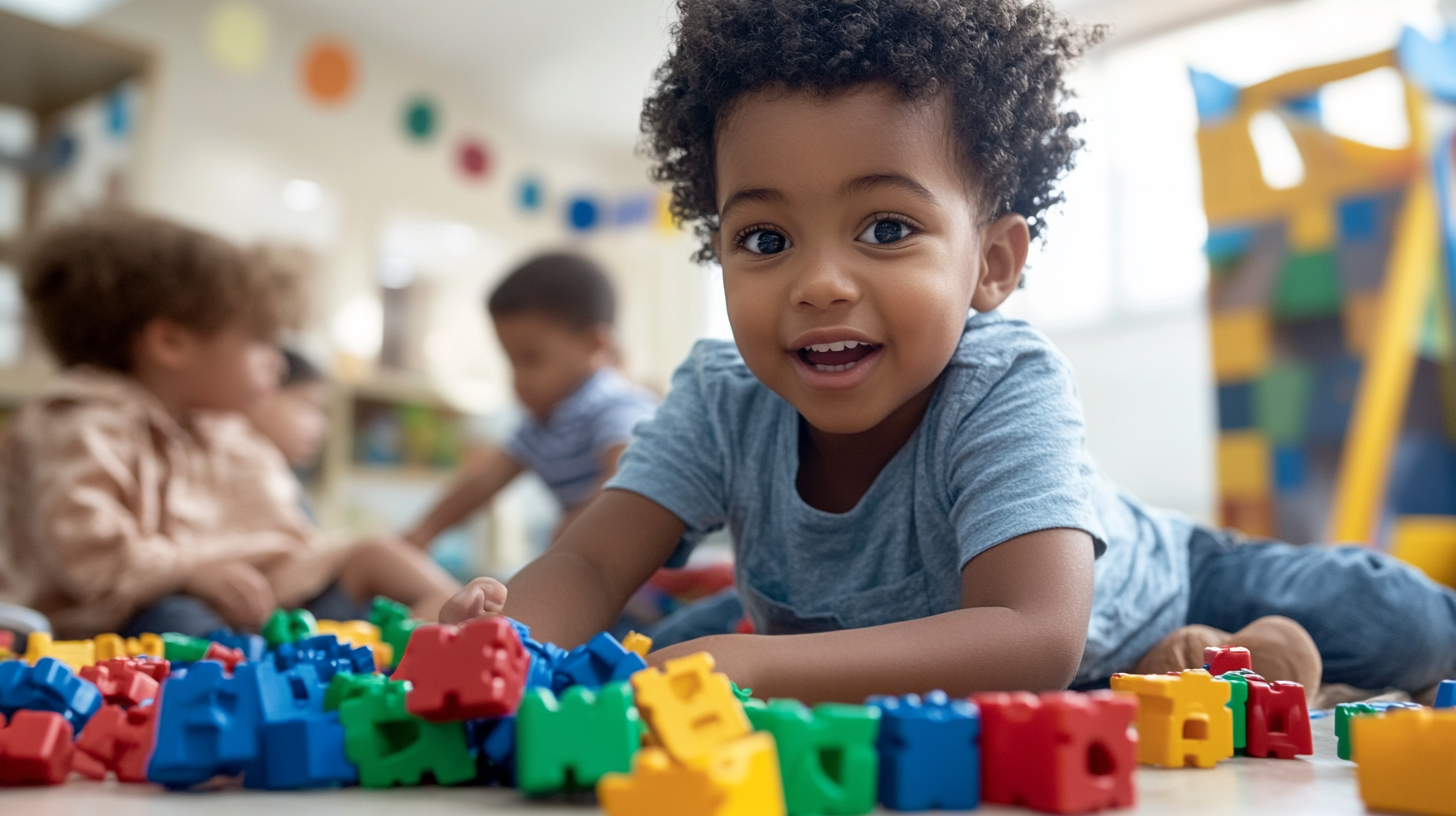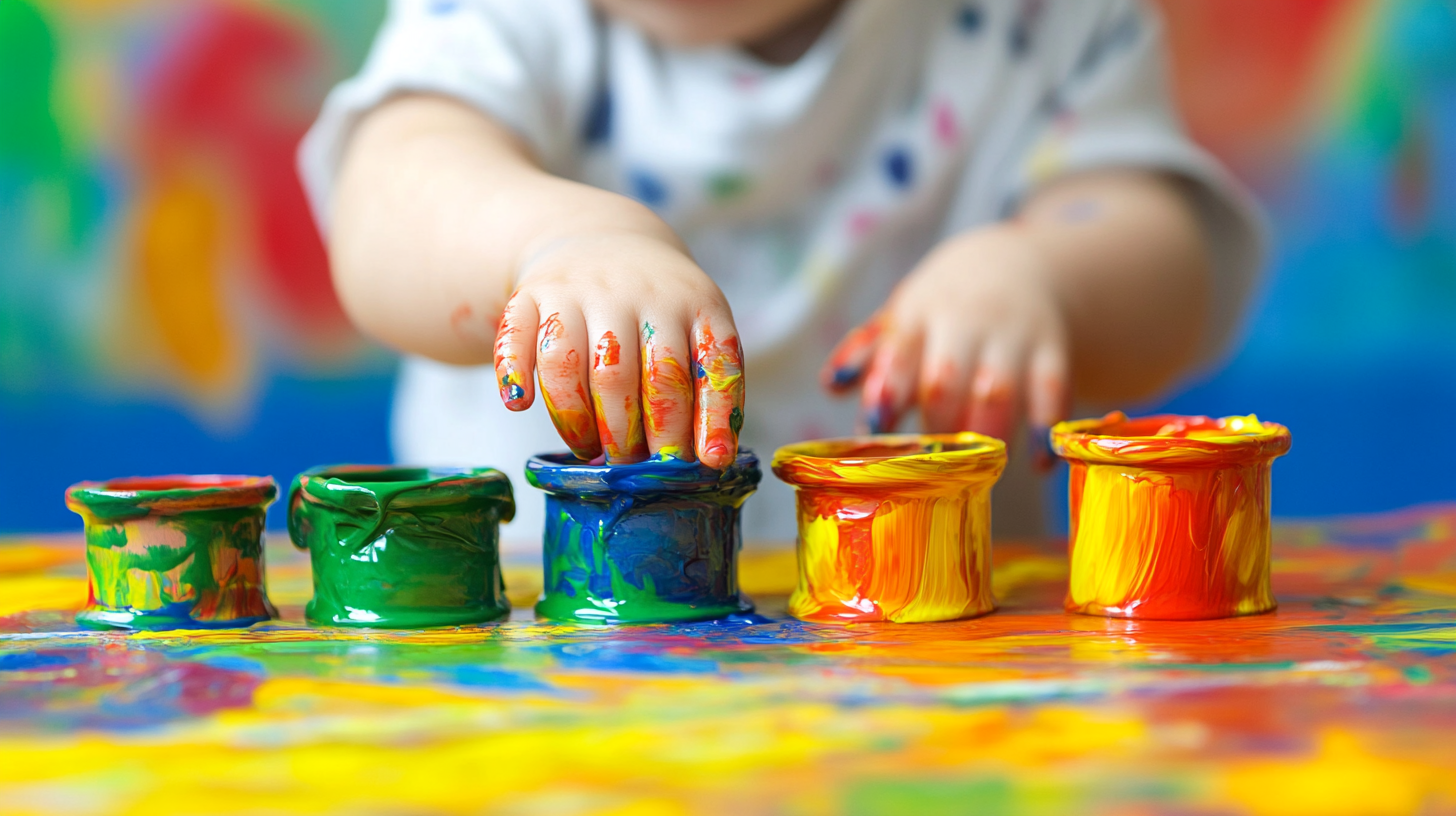The early years of a child’s life are crucial for laying the groundwork for future academic success. Engaging in early learning activities not only enhances foundational skills but also fosters a love for learning that can last a lifetime. In this article, we explore the importance of early learning, the skills it nurtures, and practical activities you can incorporate to support your child’s development.
The Importance of Early Learning
children-playing-educational-games(Early childhood education is crucial for developing foundational skills.)
Early learning is more than just preparation for kindergarten. It sets the stage for cognitive, emotional, and social development. During these formative years, children’s brains develop rapidly, making it the ideal time to introduce a variety of learning experiences.
Cognitive Development
Early learning experiences significantly impact cognitive development. Activities that stimulate curiosity and problem-solving can enhance a child’s ability to think critically and independently. These skills are fundamental for academic success and lifelong learning.
Emotional and Social Skills
Participating in group activities during early learning helps children develop essential social skills. They learn to share, cooperate, and communicate with peers, which prepares them for collaborative environments both in and out of school. Emotional skills such as empathy and self-regulation are also nurtured, contributing to well-rounded personal development.

Essential Foundational Skills
Foundational skills are the building blocks for more complex learning. Here’s a closer look at the key skills that early learning fosters:
Language and Literacy
Language acquisition is a cornerstone of early learning. Exposure to rich vocabulary and storytelling enhances literacy skills. Reading to children, engaging them in conversations, and introducing them to new words are effective ways to boost their language development.
Numeracy
Early exposure to numbers and counting lays the groundwork for mathematical understanding. Simple activities like sorting objects, recognizing shapes, and counting games help children grasp basic numeracy concepts, which are crucial for later academic success.
Fine and Gross Motor Skills
Developing motor skills is vital for children’s overall growth. Fine motor skills involve small movements, such as using crayons or scissors, while gross motor skills involve larger movements, like jumping or running. Both are important for physical development and are often incorporated into early learning activities.
Toddler Learning Activities
toddler-engaged-in-learning-activity(A toddler engaged in a hands-on learning activity.)
Incorporating learning activities into your toddler’s daily routine can be both fun and educational. Here are some activities that promote early learning success:
Story Time
Reading to your child is one of the most effective ways to boost language and literacy skills. Choose a variety of books that introduce new vocabulary and concepts. Encourage your child to ask questions and discuss the story, which enhances comprehension and critical thinking.
Counting Games
Introduce numeracy through playful counting games. Count objects around the house, such as toys or snacks. Use songs and rhymes that incorporate numbers to make learning engaging and enjoyable for your toddler.
Arts and Crafts
Arts and crafts activities help develop fine motor skills and creativity. Provide your child with age-appropriate materials like crayons, paper, and glue. Encourage them to create drawings or simple crafts, which also fosters self-expression and imagination.
Outdoor Play
Gross motor skills are best developed through active play. Encourage your child to run, jump, and climb during outdoor playtime. Activities like playing with a ball or riding a tricycle improve coordination and physical strength.

Creating a Learning Environment
child-learning-at-home(Creating a nurturing learning environment at home is essential for early learning success.)
Setting up a supportive learning environment at home is essential for fostering early learning success. Here are some tips to create an enriching space:
Designate a Learning Area
Create a specific area in your home dedicated to learning activities. This space should be inviting and equipped with educational materials such as books, puzzles, and art supplies. A designated learning area helps your child associate the space with exploration and discovery.
Encourage Curiosity
Foster a love for learning by encouraging your child’s curiosity. Answer their questions, explore new topics together, and provide opportunities for hands-on learning. A curious mind is a motivated mind, eager to learn and grow.
Be a Role Model
Children learn by example, so be a positive role model in your approach to learning. Show enthusiasm for reading, problem-solving, and exploring new ideas. Your attitude towards learning can significantly influence your child’s perspective.
The Role of Caregivers and Educators
Caregivers and educators play a pivotal role in supporting early learning. By working together, they can provide a consistent and nurturing environment that promotes a child’s academic and personal growth.
Collaboration and Communication
Open communication between caregivers and educators ensures that children receive consistent messages and support. Share insights about your child’s interests and progress, and collaborate on strategies to address any challenges they may face.
Continuous Learning
Caregivers and educators should engage in continuous learning to stay informed about the latest educational practices and resources. Attending workshops, reading relevant literature, and networking with other professionals can enhance their ability to support children’s learning effectively.
Conclusion
Early learning is a vital component of a child’s development, providing the foundation for academic success and lifelong skills. By understanding the importance of early learning and incorporating practical activities into daily routines, caregivers and educators can nurture the growth of young learners. With the right support and environment, children can build a strong foundation that will serve them well throughout their educational journey and beyond.
Contact Open Doors Preschool
Are you ready to give your child the best start in their educational journey? At Open Doors Preschool, we are dedicated to fostering early learning and development in a nurturing environment. If you have any questions or would like to learn more about our programs, please don’t hesitate to reach out!
Let us help you build a strong foundation for your child’s academic success. Contact us today!

